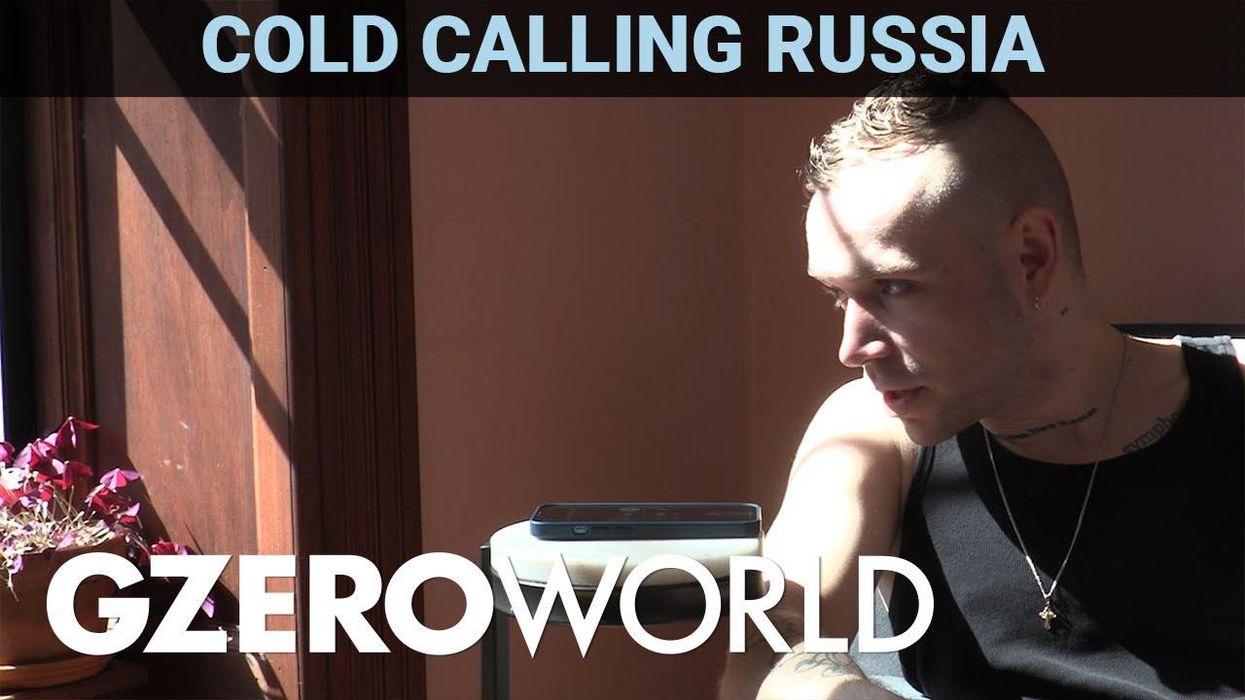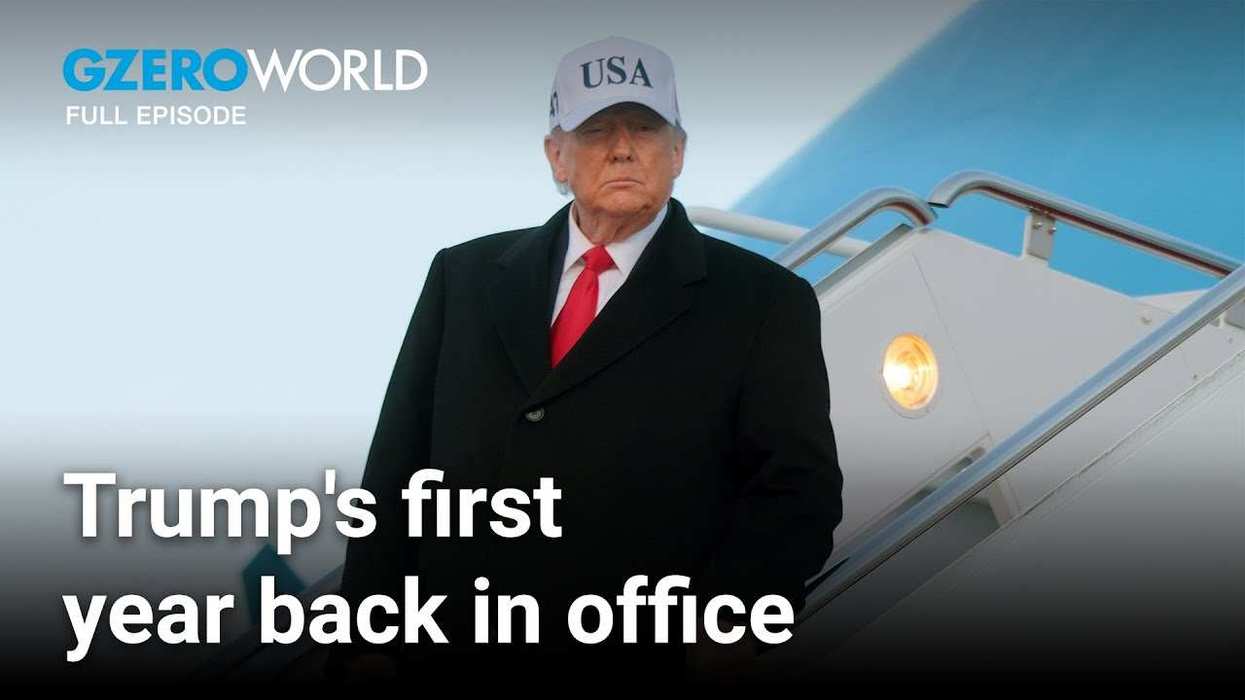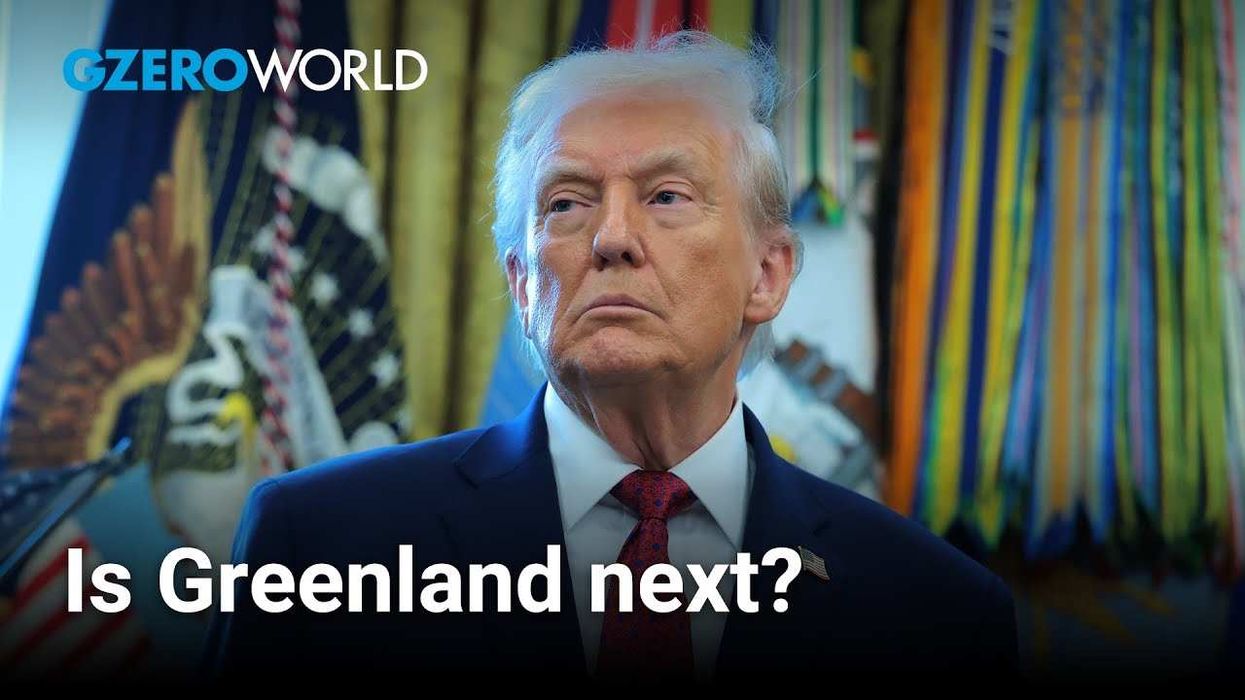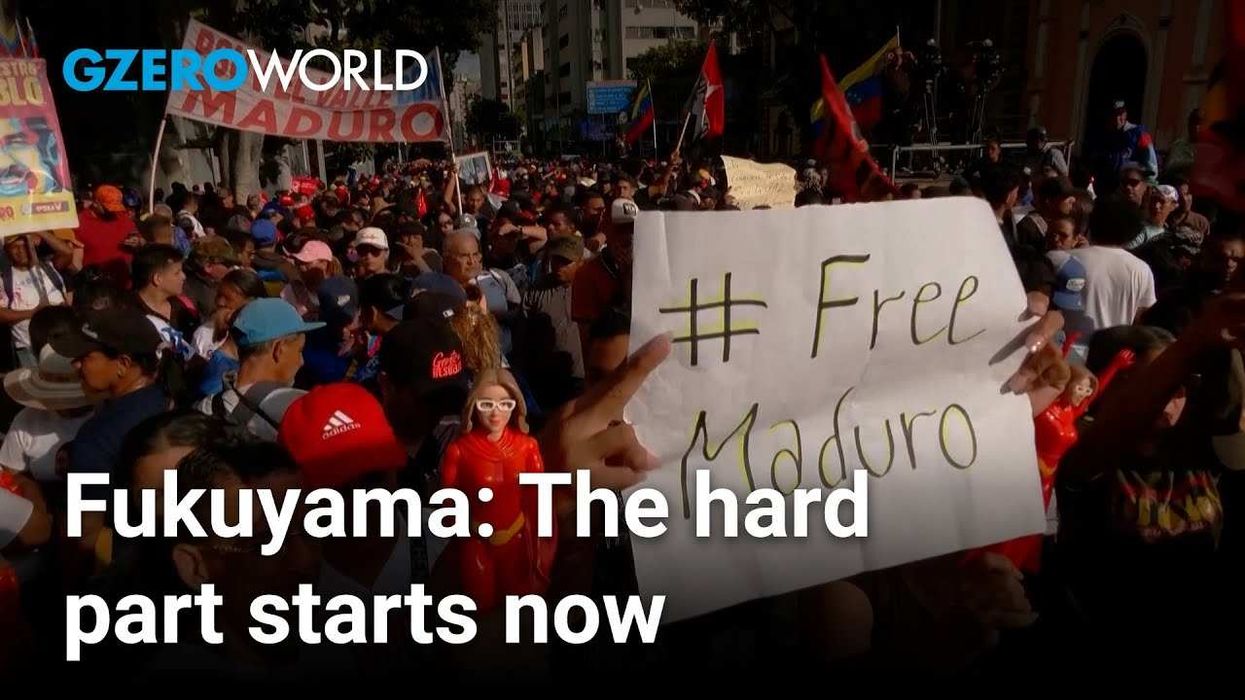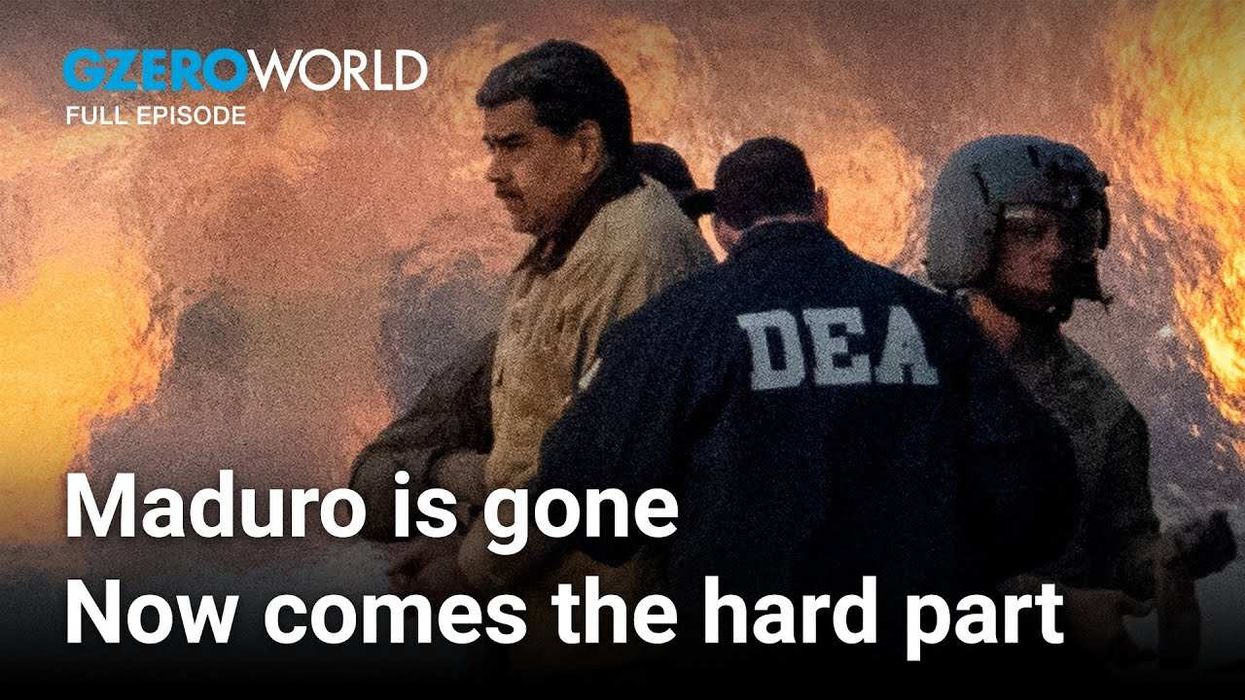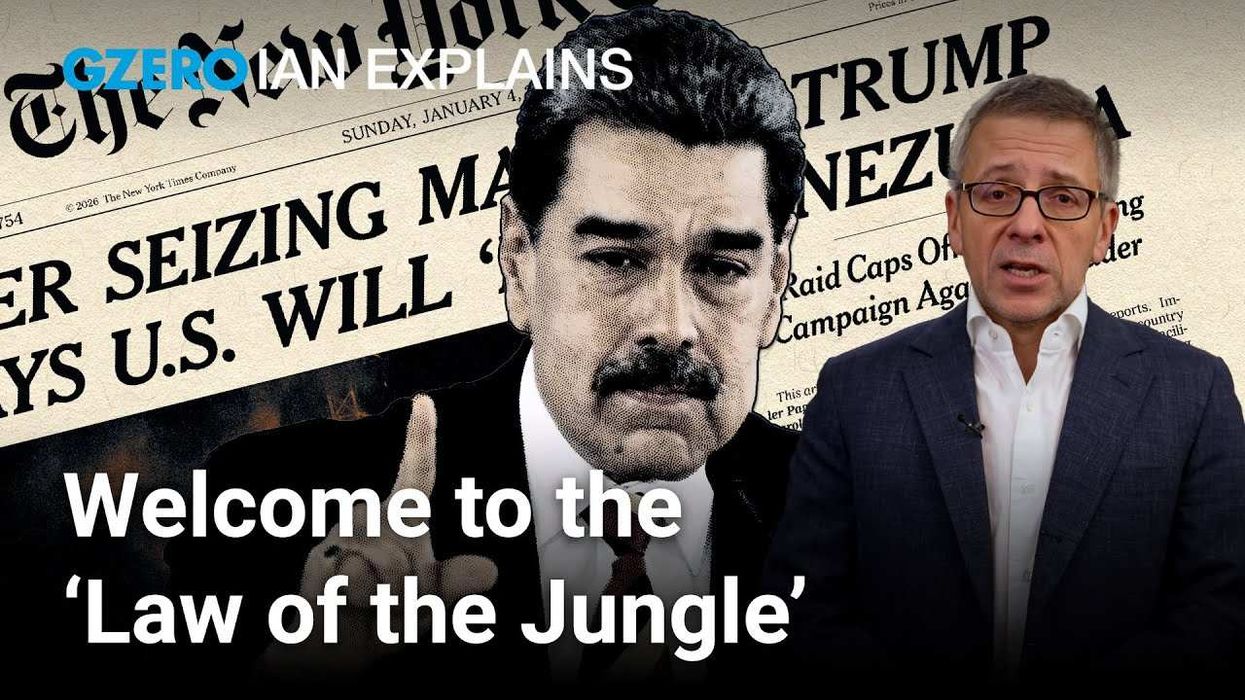VIDEOSGZERO World with Ian BremmerQuick TakePUPPET REGIMEIan ExplainsGZERO ReportsAsk IanGlobal Stage
Site Navigation
Search
Human content,
AI powered search.
Latest Stories
Sign up for GZERO Daily.
Get our latest updates and insights delivered to your inbox.
Global Stage: Live from Munich
WATCH RECORDING
GZERO World Clips
Highlights from the GZERO World with Ian Bremmer weekly television show.
Presented by
As the war in Ukraine enters its second month, some two-thirds of Russians support Vladimir Putin’s invasion, according to local pollsters.
In part that’s because the Russian government has gone to great lengths to control information about the conflict. The government has banned Western social media sites, hounded independent journalists out of the country, and arrested thousands of anti-war protestors. Merely calling Vladimir Putin's “special operation” a “war” can land you in prison for up to 15 years.
But some outside Russia are taking an innovative and very straightforward approach to changing Russian opinions: picking up the phone.
Anton Krasun, a Ukrainian-born tech entrepreneur in Ireland, recently created the Call Russia project. It’s a website that links volunteers with a database of 40 million publicly available phone numbers in Russia. With one click, you are on the line with an ordinary Russian somewhere between Voronezh and Vladivostok.
Krasun says the idea isn’t to challenge people’s beliefs head on.
“We want to appeal to human feelings, no matter what your beliefs are, everyone values human life,” says Krasun. “What’s happening in Ukraine is not a 'special operation,' it’s a war, and children are dying."
"If enough Russians start to see things differently," he believes "we can stop this war."
So far, volunteers from 50 countries have made more than 90,000 of the calls. One of them, is Nikita, a Russian emigré artist in Brooklyn, New York. He let us sit in on some of his calls.
In one of them, a man picked up while sitting in a traffic jam in an unknown large Russian city. "Sure," he said, "we can talk."
Giving his name only as "you can call me 'you'," he was categorical: he supported the war. "Ukraine," he said, "is a seedbed of Nazis."
In another call, a woman who refused to give her name but said she was in Moscow had a milder view, but one still in line with the Kremlin's message. "This war was necessary, it was unavoidable," she said. "Obviously I feel for the people of Ukraine, but Im a patriot and I love my country -- I believe my president -- if he hadn't attacked Ukraine, the Ukrainian army would have attacked us first."
"Changing beliefs like these in Russia today wont be easy," according to Maxim Sytch, a professor at the University of Michigan who studies how social and organizational networks create power and influence.
For Sytch, who grew up in both Russia and Ukraine, It's not just a problem of poor access to information. Russians now hold "deeply entrenched beliefs" that have been shaped by years of state-guided propaganda about Western threats in general, and the rise of fascism in Ukraine in particular.
Russians have been told that this is a war to liberate Russian-speakers in Ukraine from a Nazi government bent on their extermination. To suddenly oppose this war, he says, Russians would have to give up that whole world view.
Still, despite long odds, Krasun and his team of volunteers are still calling. "We have a duty to try," he says.
Want more stories like this? Sign up for GZERO’s popular daily global politics newsletter, SIGNAL here.
Keep reading...Show less
More from GZERO World Clips
President Trump against the world
February 16, 2026
How Singapore navigates a fragmented world
February 02, 2026
Singapore thrived on globalization. Now what?
January 30, 2026
Can Europe stay united?
January 23, 2026
One year into Trump 2.0: How the world has changed
January 18, 2026
How Trump transformed the US presidency
January 16, 2026
Frank Fukuyama on Venezuela: "This is a nation-building exercise"
January 13, 2026
Maduro is gone. What happens now?
January 12, 2026
Venezuela after Maduro and Trump unleashed
January 09, 2026
GZERO Series
GZERO Daily: our free newsletter about global politics
Keep up with what’s going on around the world - and why it matters.
